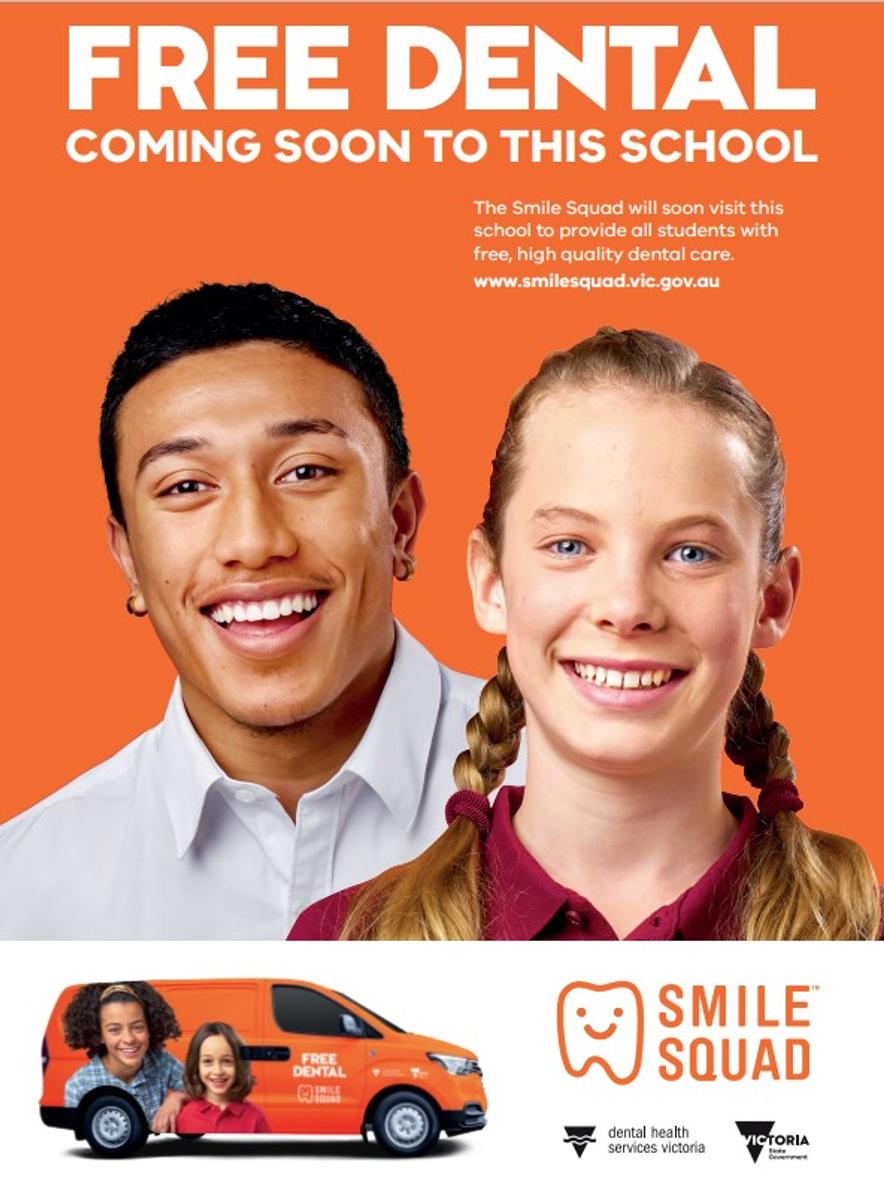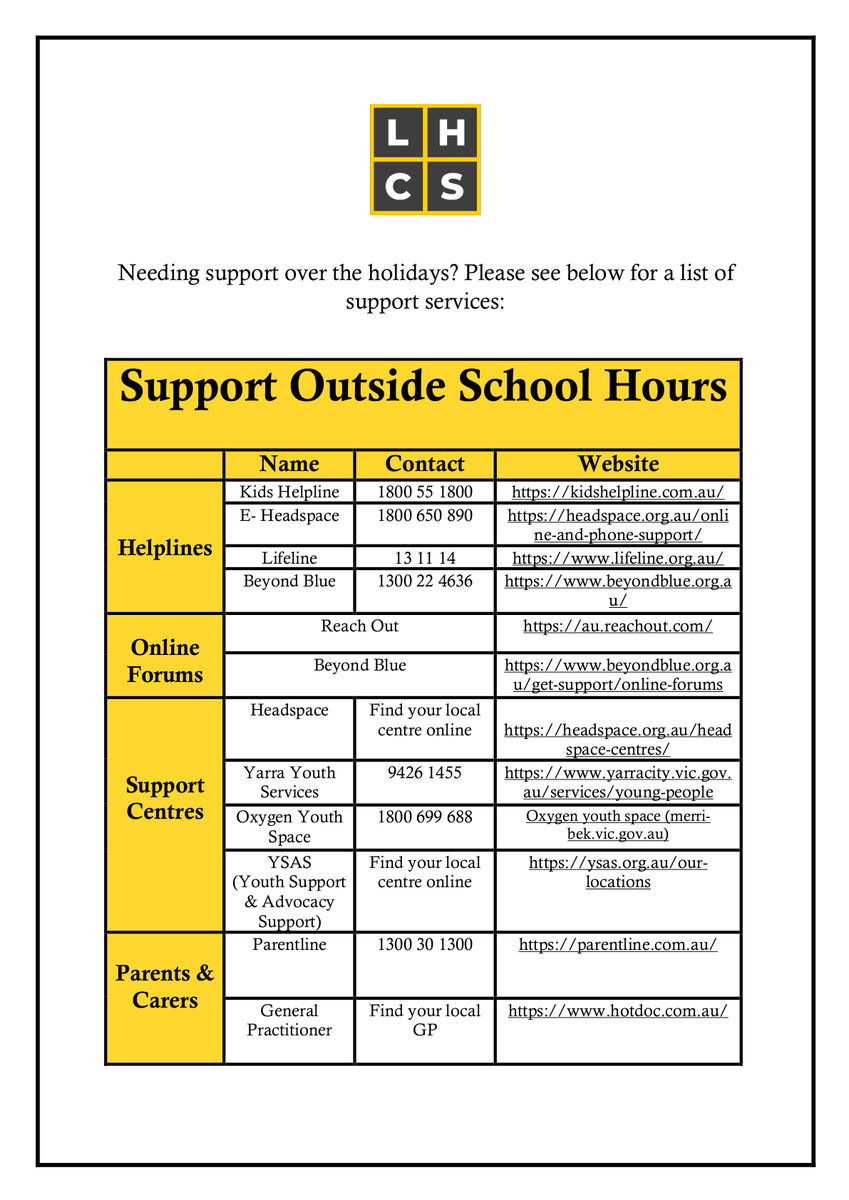Health & wellbeing news

Dental Van- Smile Squad at the Richmond campus
The Smile Squad team from North Richmond Community Health are coming to our Richmond campus on 24th April 2023. Smile Squad is the Victorian Government free school dental program. This means all students can get a free dental check-up, preventive services, and treatment!
Smile Squad need consent before they can provide services. Consent is usually provided by a parent or guardian. Sign up to Smile Squad at: https://bit.ly/smilesquadvic
OR use the below QR code:
Please complete and submit the consent form by Thursday 6th April 2023.
Paper copies of the consent form are available. Please contact the school office if you would like to request one. The electronic consent form can be translated into more than 100 languages, and the paper form is available in 13 languages.
Do I need to attend my child’s appointment? No, you do not need to attend your child’s appointment. You can attend if you would like to, and you can take your child to the community dental clinic if you prefer.
The North Richmond Community Health Smile Squad is look forward to seeing you soon.
External Parenting Program
Researchers from Monash University and Deakin University are offering parents a FREE online parenting program designed to support parents of teenagers who have difficulty attending school due to anxiety, depression, or emotional distress (sometimes called ‘school refusal’, ‘school can’t’, or ‘school phobia’). The program is being offered as part of a research trial. For more information and to join this program: https://pip-ed.web.app
What is included in the program-
- A parenting self-assessment tool with personalised feedback
- Up to 13 online modules with practical strategies to support your teen's mental health and school attendance
- Complete weekly modules and work towards goals
Sleep hygiene
While we know sleep is essential for good health, research shows that many children and young people are not getting enough sleep on school nights. This can affect thinking, concentration, memory, reaction times and mood.
Research shows about 12% of primary school-aged children, a quarter of 12- to 15-year-olds and half of 16- to 17-year-olds don’t get enough sleep on school nights. The recommended amount of time to sleep for primary school-aged children is 9 to 11 hours. For teenagers, it’s 8 to 10 hours.
Signs that your child is not getting enough sleep can include:
- low mood and irritability during social interactions
- reluctance or arguing about getting off devices and going to bed
- falling asleep during the day
- difficulties waking up for school and sleeping in late on weekends to catch up
- changes to communicating or interacting at home.
You can help your child to improve their sleep by:
- establishing a regular sleep pattern and consistent bedtime routine
- supporting them to avoid using electronic devices such as smartphones before going to bed and in bed
- encouraging your child to exercise and spend time outside in daylight, steering clear of vigorous activity in the hour before sleep
- encouraging them to wind down and relax before going to bed.
If your child is still having trouble sleeping, has persistent problems with low mood, excessive daytime sleepiness, restlessness in bed, severe snoring or wakening unrefreshed, despite getting adequate length sleep, they should see a doctor.
For more information on sleep health, you can refer to:
- Sleep tips for children and Facts about sleep for parents and school staff, from the Sleep Health Foundation
- Why sleep is so important, from the Kids Helpline’s
- Sleep explained, from the Better Health Channel.




